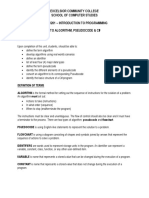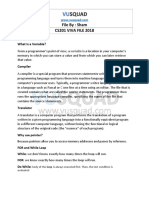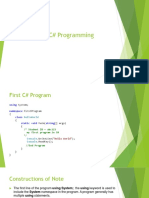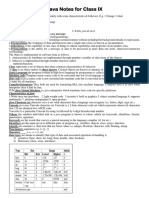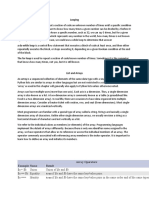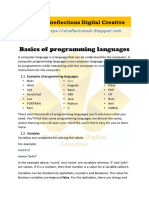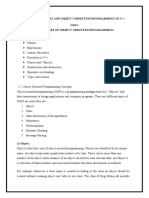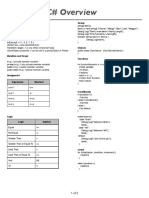0% found this document useful (0 votes)
16 views27 pagesC# Scripts: Within Unity
The document provides an overview of C# scripting within Unity, explaining key concepts such as scripts, classes, inheritance, and functions. It emphasizes the importance of using declarations, variable declarations, and expressions in programming, as well as the role of comments and loops. Additionally, it highlights the significance of functions as fundamental building blocks of a program.
Uploaded by
mbielawski21Copyright
© © All Rights Reserved
We take content rights seriously. If you suspect this is your content, claim it here.
Available Formats
Download as PDF, TXT or read online on Scribd
0% found this document useful (0 votes)
16 views27 pagesC# Scripts: Within Unity
The document provides an overview of C# scripting within Unity, explaining key concepts such as scripts, classes, inheritance, and functions. It emphasizes the importance of using declarations, variable declarations, and expressions in programming, as well as the role of comments and loops. Additionally, it highlights the significance of functions as fundamental building blocks of a program.
Uploaded by
mbielawski21Copyright
© © All Rights Reserved
We take content rights seriously. If you suspect this is your content, claim it here.
Available Formats
Download as PDF, TXT or read online on Scribd
/ 27





